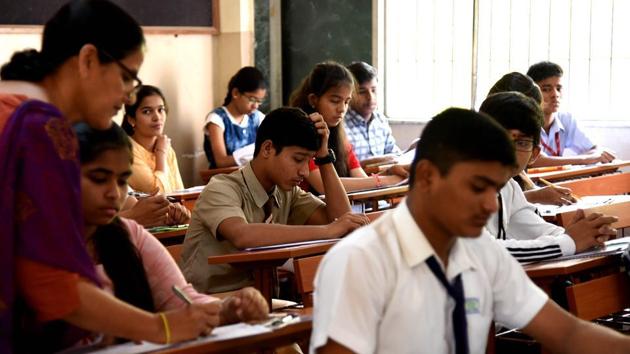Pre-Board 2020: Tips and Tricks to Prepare for the exam
As the summative Board exams loom near towards the end of the academic year, the students of grades 10 and 12 start gearing up for the pre-board exams.
As the summative Board exams loom near towards the end of the academic year, the students of grades 10 and 12 start gearing up for the pre-board exams in December and January, because there is no looking back after this!

Both Indian public and private universities, as well as foreign universities, demand at least an 85-90% aggregate average for even the least subscribed courses of study unless the course of study grants admission based on an entrance test. The Ivy League colleges in the USA, UK, Singapore and Australia demand well above 90-95% scores.
With such high competition, the road ahead is anything but easy. One difference between a student who doesn’t score high and one who does lies in the fact that the latter starts his or her preparation early, working consistently throughout the year, instead of rushing to revise at the very end. It’s those small steps towards prep for the first semester exams that determine whether a student will be able to achieve the much-desired score or not.
But this doesn’t mean you spend hours on ends buried in your textbooks. The way knowledge is absorbed, processed and retained can differ from an individual to individual, but here are some simple guidelines that each student can follow to make their preparation for the pre-board examination more effective.
Firstly, one needs to develop a stress-free environment around one’s study space by preparing well from the beginning of the year, eating a healthy diet, getting eight hours of sleep and exercising for at least 45 minutes daily to be able to concentrate better. For some students, collaborative revision works well when they can bounce off their understanding of concepts with a mindful friend.
Secondly, they should have a deep familiarity with their grade-specific textbooks and their class notes. If their notes are not complete, they should try and complete them before the first-term exams. All gaps in understanding of concepts need to be worked on with subject teachers.
Thirdly, they need to ensure that the content is summarised well through detailed pictorial mind-maps, which could be drawn in a sketchbook-preferably one mind-map per chapter. This is because a picture is retained longer in memory than text alone. These should ideally be made before the half-yearly exams and later consulted with subject teachers for any omissions and feedback. However, for kinaesthetic learners, mind-maps/ flow charts drawn with chalk on a blackboard or the floor of your balcony work better. These could be photographed and saved.
Fourthly, diagrams, equations, formulae and keywords should be etched on coloured post-its and stuck on the relevant mind-maps. Students can even maintain a diary or photo album.
Fifthly, on the few days leading up to the exam, students shouldn’t waste time reading textbooks. They should go over these detailed mind-maps and redraw them from memory without looking; after which they need to compare them with originals to see how much they have not retained and continue this practice. They should also go over old answer sheets that have been corrected by their teachers so that they wouldn’t repeat those mistakes.
Finally, students need to remember that at the end of it all, it’s only an assessment and an assessment is just one of the many challenges in a student’s life that teaches one time-management, stress-management and prioritization, which are all life-skills that help keep us in good stead for life itself. Everyone makes mistakes, but if one practices learning from one’s mistakes and incorporating feedback, success in life shall be yours.
On that note, here’s wishing every student all the very best!
(Author Monica Sagar is Principal of Shiv Nadar School in Gurugram. Views expressed here are personal.)
Discover the complete story of India's general elections on our exclusive Elections Product! Access all the content absolutely free on the HT App. Download now!
Get latest news on Education, along with Board Exam, Competitive Exam, PSEB Result Live and Exam Result at Hindustan Times. Also get latest Job updates on Employment News









